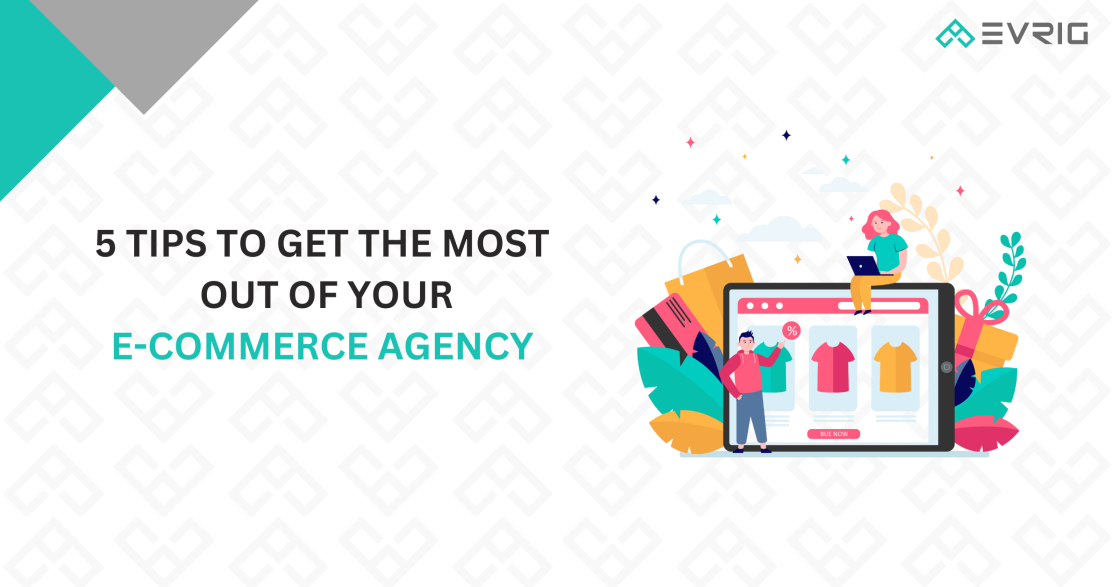Your eCommerce website is in need of a major overhaul. Integrations are malfunctioning, the site's performance is sluggish, the user interface looks outdated, and manual back-end processes are consuming precious time that could be used for strategic initiatives.
Selecting the right eCommerce agency becomes crucial, but how do you make the best choice? Moreover, ensuring a smooth project execution and being an ideal client are equally vital.
To tackle these challenges, we sought insights from three seasoned eCommerce agency experts. Here, we present their advice on how to navigate through the process, ensuring a successful project outcome.

- Choose the perfect agency for your business
- Promote collaboration and shared goals
- Proactively address challenges throughout the entire development process
- Optimise time to achieve desired outcomes and minimise resolution time in case of issues.
5 tips From Professionals
1. Choosing the Ideal Agency to Cater to Your Unique Requirements
Each business is distinct, implying that not every agency will be a suitable fit for your company. Investing additional time in the initial stages to discover the perfect partner can prevent conflicts, delays, and misunderstandings down the road. When commencing your assessment, examine the following aspects of an agency:Agency Experience and Project Evaluation
It's essential to assess whether the agency has handled clients of a similar size and industry. To validate their claims, review case studies on their website and inquire about project outcomes during your consultation call. Even if the agency hasn't worked with a company identical to yours, consider giving them an opportunity. While industry experience holds significance, the number of successful implementations can be equally valuable, as pointed out above.Best Practices
Top-notch agencies adopt superior methodologies and cutting-edge technologies, such as code repositories, validated coding practices, automated code quality testing, and a well-structured release process. This ensures a seamless progression from development to testing, staging, and ultimately, production.Expertise
It is crucial to collaborate with agencies possessing skilled professionals capable of delivering outstanding results. Their developers should hold certifications in your chosen eCommerce platform and have expertise in areas you aim to enhance, such as:- Optimising conversion rates
- Improving eCommerce UI/UX
- Ensuring website accessibility and compliance
- Providing managed hosting solutions
- Implementing headless architecture
- Creating custom integrations
2. Be Prepared to Get What You Pay For
Similar to any service, agencies charge fees that correspond to their time and expertise. the finest agencies may not be the cheapest, but they invest in outstanding talent capable of executing successful projects. They are reliable, thorough, and take full ownership of the project, incorporating client input without the need for micromanagement. On the other hand, freelancers or budget-friendly development agencies lack such assurances and can pose significant risks, potentially leading to more work and complications for you.3. Active Engagement and Commitment to the Project
It's crucial to recognize that eCommerce projects require active involvement from both the agency and the clients. While the agency takes on most of the workload, clients must be fully engaged, present, and willing to participate in various stages, including discovery, weekly discussions, and quarterly recap meetings. Client input is essential to deliver precisely what they desire. To streamline the process, all three experts suggested designating a knowledgeable and highly-engaged point of contact (POC) who can act as a liaison between the client and the agency project teams. At Evrig Solutions, we prioritise transparency in our processes. We grant access to the same ticketing systems and Slack channels for everyone involved. All stakeholders are invited to meetings, ensuring a clear understanding of how we work, which enhances project engagement. Our agile approach encourages clients to focus on use cases rather than pre-designing solutions. This allows our development team to identify the most efficient solution for the problem at hand. For instance, during a recent project, a prospect needed two separate shopping carts on Shopify. However, a deeper understanding of the use case revealed a simpler, more cost-effective solution that achieved the core goal, illustrating the benefits of our transparent and collaborative approach.
